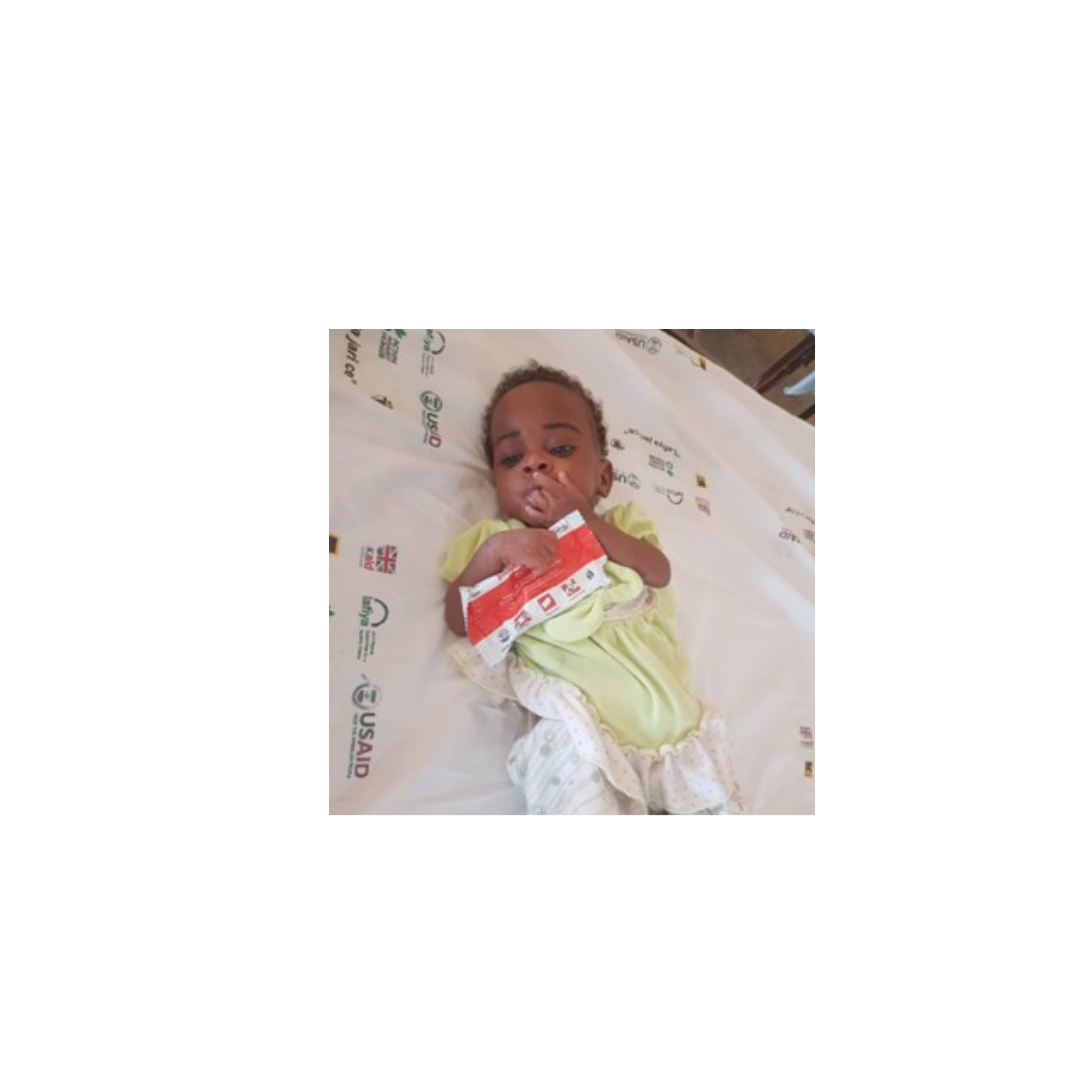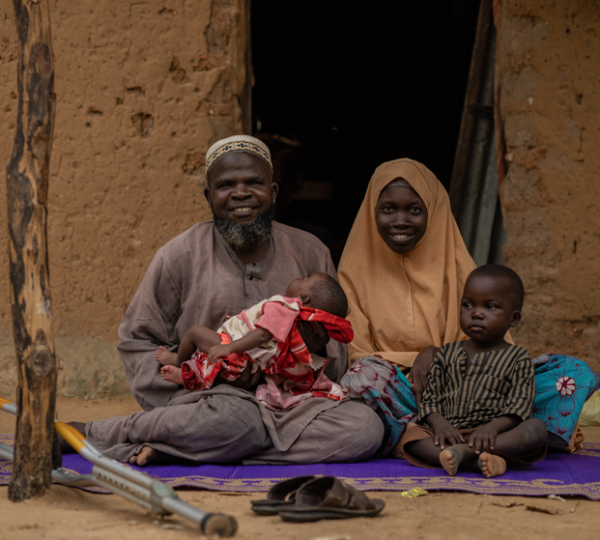Overcoming Adversity: Fatima’s Journey to Health and Recovery
By Adamu Bashir Bashir
According to a recent survey conducted by the United States Agency for International Development (USAID), Nigeria ranks second globally in terms of malnutrition rates. UNICEF reports that in the northeastern region of Nigeria, approximately 400,000 children are at risk of severe acute malnutrition (SAM), with over 75,000 at risk of losing their lives. This underscores the urgent need for interventions and support to address this alarming health crisis. In Bajoga Local Government Area of Gombe State resides a young girl named Fatima, whose life has been marked by challenges that no child should have to face. Born to Abdullahi Jibrin, a hardworking commercial motorbike rider. Her story reveals that of resilience, community support, and the transformative power of dedicated healthcare services.
A Challenging Beginning: Fatima’s entry into the world was marred with complications. Her mother endured a difficult breech presentation during labour, leading to over 12 hours of painstaking delivery. The situation escalated, and she was rushed to the General Hospital in Bajoga, where Fatima was brought into the world through a cesarean section. Tragically, Fatima’s mother passed away shortly after giving birth, leaving behind a grieving family and a fragile newborn.
Early Struggles and Determination: With her mother’s passing, Fatima’s early life took an unexpected turn. The family’s financial constraints necessitated a departure from standardised branded complementary feeding to more affordable, locally prepared foods suitable for infants. At just three months old, she was introduced to pap (corn meal) and other semi-solid foods, setting the step for her health struggles. From birth to five and a half months, Fatima faced an uphill battle with failure to thrive. Her underweight status and susceptibility to various health issues were glaring signs that intervention was necessary. Despite her family’s best efforts, her weight lagged behind that of a typical newborn, and her health concerns mounted.
SFH Intervention
In Nigeria, organisations like the Society for Family Health (SFH) play a key role in bridging healthcare gaps and addressing the needs of disadvantaged communities. SFH’s initiatives span across all states, focusing on Universal Health Coverage (UHC) by improving health-seeking behaviours and ensuring access to high-quality services for marginalised groups.
Medical Health Outreaches and Integrate E Project: One of SFH’s key initiatives, the IntegratE project, conducts medical health outreaches to extend care to underserved areas. It was during one such outreach that Fatima’s family sought help for her deteriorating health. Unfortunately, her condition exceeded the scope of the outreach team’s capabilities, leading to her referral to the Gombe State Specialist Hospital.
A Rocky Road to Recovery: At the Gombe State Specialist Hospital, Fatima received treatment for broncho-pneumonia, but her severe malnutrition posed a complex challenge. The hospital lacked the resources needed to address her Severe Acute Malnutrition (SAM). This dilemma highlighted a critical issue – the absence of a Stabilisation Center for SAM within Gombe State, forcing patients like Fatima to travel long distances for necessary care.
The Collaborative Solution: In response to Fatima’s urgent situation, a collaborative ad-hoc team was formed, consisting of members from both the IntegratE and HeRON projects. Understanding the critical nature of Fatima’s condition, the team made an important decision – connect Fatima with the nearest Stabilisation Center, supported by the Health Resilience of North East Nigeria (HeRON) project and funded by USAID. This centre, situated at the General Hospital Kwaya in Southern Borno State, became the guiding light on Fatima’s path to recovery, offering hope and much-needed care.
Fatima’s Road to Recovery: Upon admission to the Stabilisation Center, Fatima’s condition consisting of dire- severe dehydration, SAM, and pneumonia had taken their toll. Weighing only 2.9kg with a Mid-Upper Arm Circumference (MUAC) of 8cm, her journey to recovery began. Rehydration using Rehydration Solution for Malnutrition (ReSolMal), therapeutic milk, and pneumonia treatment were administered diligently to her.
After nearly three weeks of intensive care, Fatima emerged stronger. Her discharge marked the start of a new chapter, as she was linked to an Outpatient Therapeutic Program (OTP) site at PHC Sangaru in Bajoga Local Government Area. With her MUAC reading improved to 9.5cm and her weight at 4kg, Fatima’s remarkable progress shows strength and the unwavering support she received from those around her. From the inception in June 2021 to July 2023, about 357 children (197 males and 160 Females) like Fatima were admitted, stabilised and linked to OTP sites for continuous care.

Conclusion: Fatima’s story is one of triumph over adversity, powered by collaboration, determination, and compassionate healthcare initiatives. Her journey from a fragile newborn facing severe malnutrition and health challenges to a thriving young girl is a proof to the impact that organisations like SFH can have in transforming lives. As we celebrate Fatima’s remarkable recovery, let her story inspire us to continue supporting efforts that bring healthcare and hope to those who need it most.





